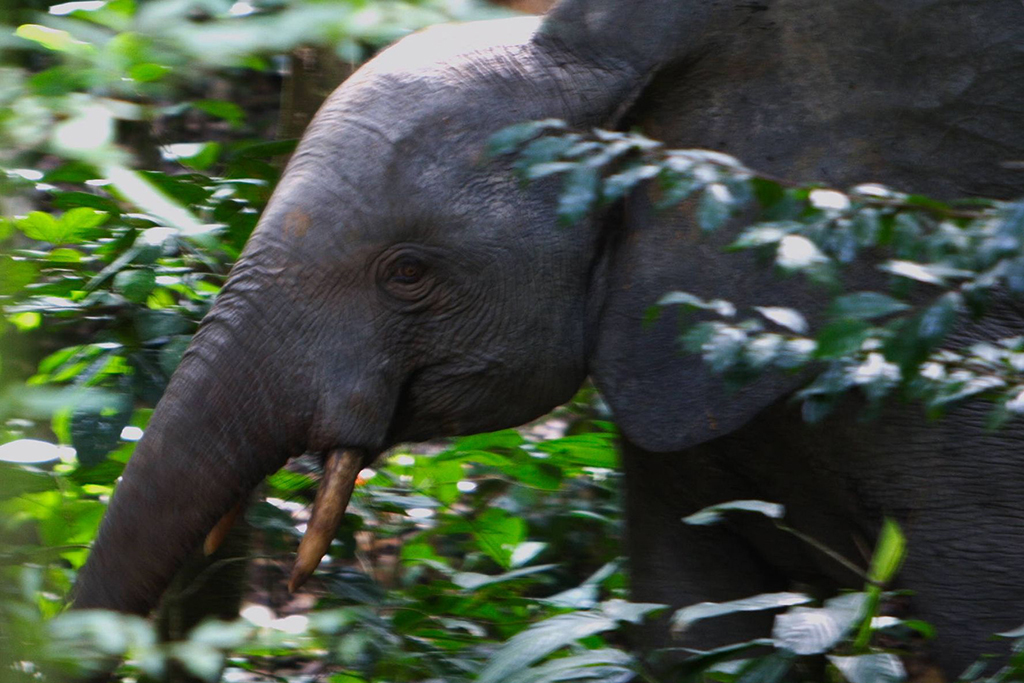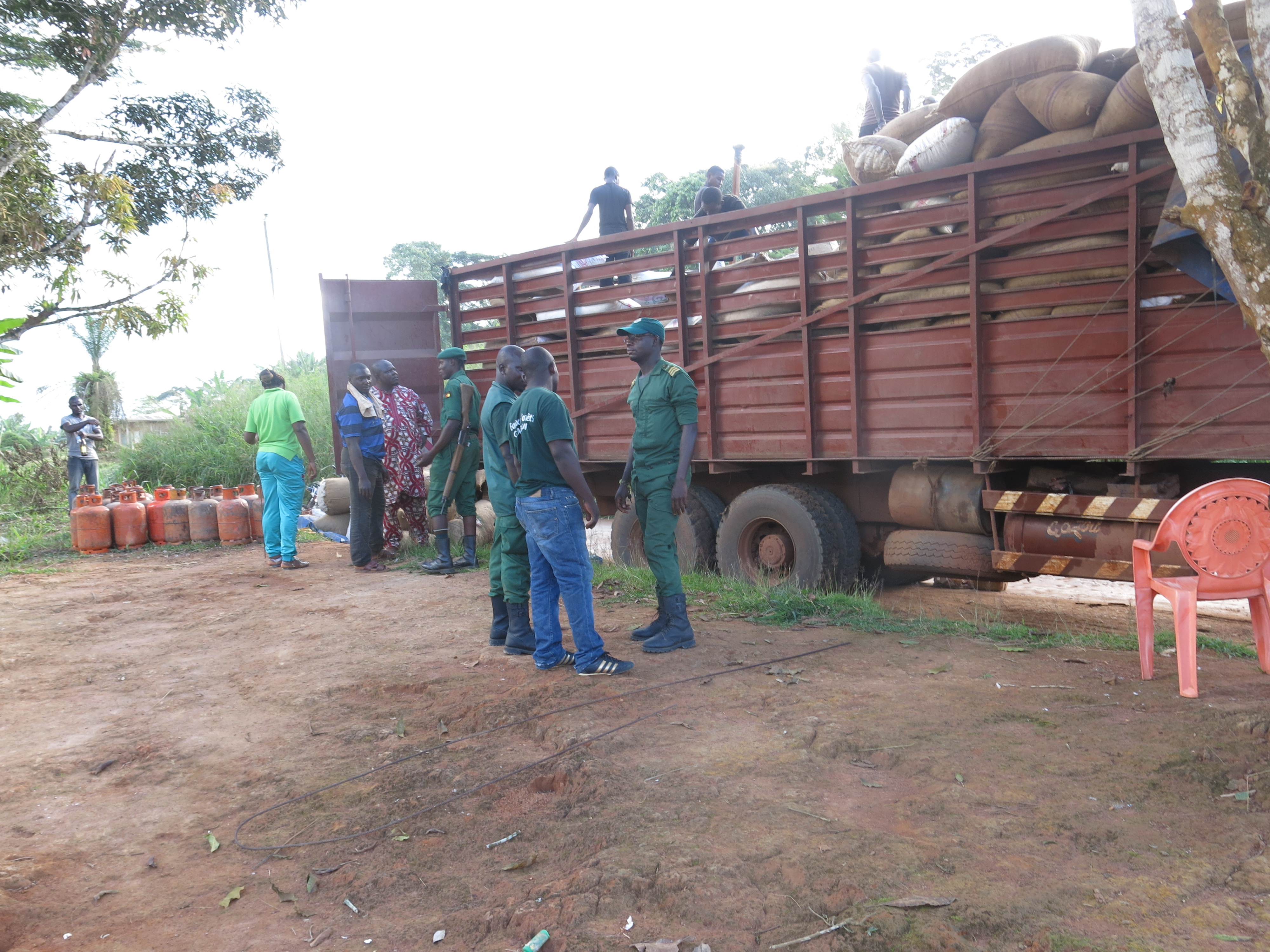Exposing illegal trade in elephant tusks
Following a seizure of ivory, a suspected illegal trader has been sentenced to imprisonment. Paul de Ornellas of the Zoological Society of London (ZSL), a grantee with IUCN’s SOS initiative, explains how ZSL helped expose the crime.
In November 2014, a project team working in the Dja Biosphere Reserve (DBR), a conservation area in Cameroon and home to the Endangered forest elephant, was involved in arresting a suspect with 91 kg of tusk hidden in his truck full of cocoa bags.
Illegal wildlife traders in the region often hide illicitly obtained goods such as ivory, elephant tails and pangolin scales under very heavy loads. Forest officers inspecting vehicles cannot offload tons of goods unless they are absolutely certain of the presence of illegal materials, so it is a popular way of evading the authorities.
In this case a truck was seized in Djoum, a town outside of the Dja reserve, based on reliable information from the informant system supported by ZSL through SOS funds. The truck belonged to a well-established, rich businessman and the case attracted much attention locally. It presented a challenge for DBR ecoguards, but partners including ZSL coordinated their efforts, with ZSL providing full support during the court procedure until a sentence was passed.
The accused businessman was found guilty, condemned to 4 months’ imprisonment and ordered to pay around US$ 22,000 in fines and civil awards. The accused has filed an appeal and the case has been sent to the Court of Appeal. Over the last year, ZSL has been following the case closely and working with the head of the DBR legal unit, Robert Okale, to ensure that the current judgment is upheld.
Poaching, habitat loss and illegal wildlife trade are pushing wildlife to the very edge. Illegal wildlife trade, estimated to be worth over US$ 10 billion annually, is the world’s fourth most lucrative criminal industry after drugs, human trafficking and weapons. In just two years between 2010 and 2012 over 10% of the total African elephant population was slaughtered for ivory.
The grantee has also been invited by the Government of Cameroon to support its National Ivory Action Plan (NIAP). As part of its support for NIAP, ZSL is ensuring that the 91 kg of tusks and other seized illegal items are not fraudulently fuelling the black market.
This blog post is part of a series highlighting frontline conservation work from grantees of SOS – Save Our Species, a global initiative created by the Global Environment Facility (GEF), the World Bank and IUCN, since joined by numerous other donors. Managed by IUCN, SOS aggregates and redistributes much-needed funding to high-impact species projects implemented by conservation organisations worldwide.
This is just one of many anti-poaching projects supported by IUCN’s SOS initiative. With your continued support we can continue to support frontline conservation tackling a number of high-priority issuesincluding illegal wildlife trade such as ivory poaching. Please donate now and help SOS save more species





